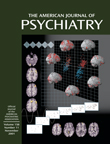To the Editor: We appreciate Dr. Gupta’s thoughtful reading of our article. He points out that the rates of response of patients with chronic major depression to pharmacotherapy are modest and that our study suggested that ECT could be an effective therapeutic modality for this group. Although we agree with this point, we underscore that our experimental design did not enable us to determine whether the response rate of our patients was superior to what might have been expected with pharmacotherapy alone. Since our study was concerned with the efficacy of continuation ECT, a criterion for entry into the study was a positive response to an acute course of ECT.
We agree with Dr. Gupta that the majority of our patients were treatment resistant and that our findings have the most direct relevance to this clinical group. Indeed, although the patients who received continued ECT in our study were significantly more treatment resistant than those receiving antidepressants alone, the patients in the continuation ECT group had a better outcome. As Dr. Gupta notes, our study was subject to the important limitations of being retrospective in nature and being conducted without benefit of objective assessment measures. However, our relapse criteria (reemergence of symptoms sufficiently severe to require either rehospitalization or a new course of acute ECT) were quite stringent and may actually have caused us to underestimate the magnitude of the clinical benefit of continuation ECT.
Again, since our study was retrospective, we were not able to distinguish clearly between “response” and “recovery.” Although it is possible, as Dr. Gupta suggests, that the patients may have had a premature termination of acute ECT, it is unlikely that this could have accounted for our findings, since the patients in the group receiving antidepressants alone actually had a nonsignificantly greater number of treatments of acute ECT than those in the continuation ECT group.
Similarly, although we did not report this finding because of space constraints, we observed no difference in the prevalence of comorbid personality disorders between the two treatment groups. We were unable to evaluate the adverse neurocognitive effects of continuation ECT in this study, which contributed in part to our emphasis on the need for judicious use of this therapeutic approach. In disagreement with Dr. Gupta, we note that two-thirds (39 of 58) of our patients were available for analysis at 2-year follow-up, rather than the 50% he cited.
That acute ECT confers only transient benefits has been convincingly evident since 1962
(1), and recent work has again confirmed this and further demonstrated the modest degree of protection provided by continuation pharmacotherapy in responders to acute ECT who suffer from either of the two current major indications for ECT (treatment-resistant or psychotic depression)
(2). Although we acknowledge the limitations of a retrospective chart review of outcomes during continuation ECT, we believe our findings are sufficiently compelling to warrant careful consideration by clinicians treating patients with severe and chronic depression.

